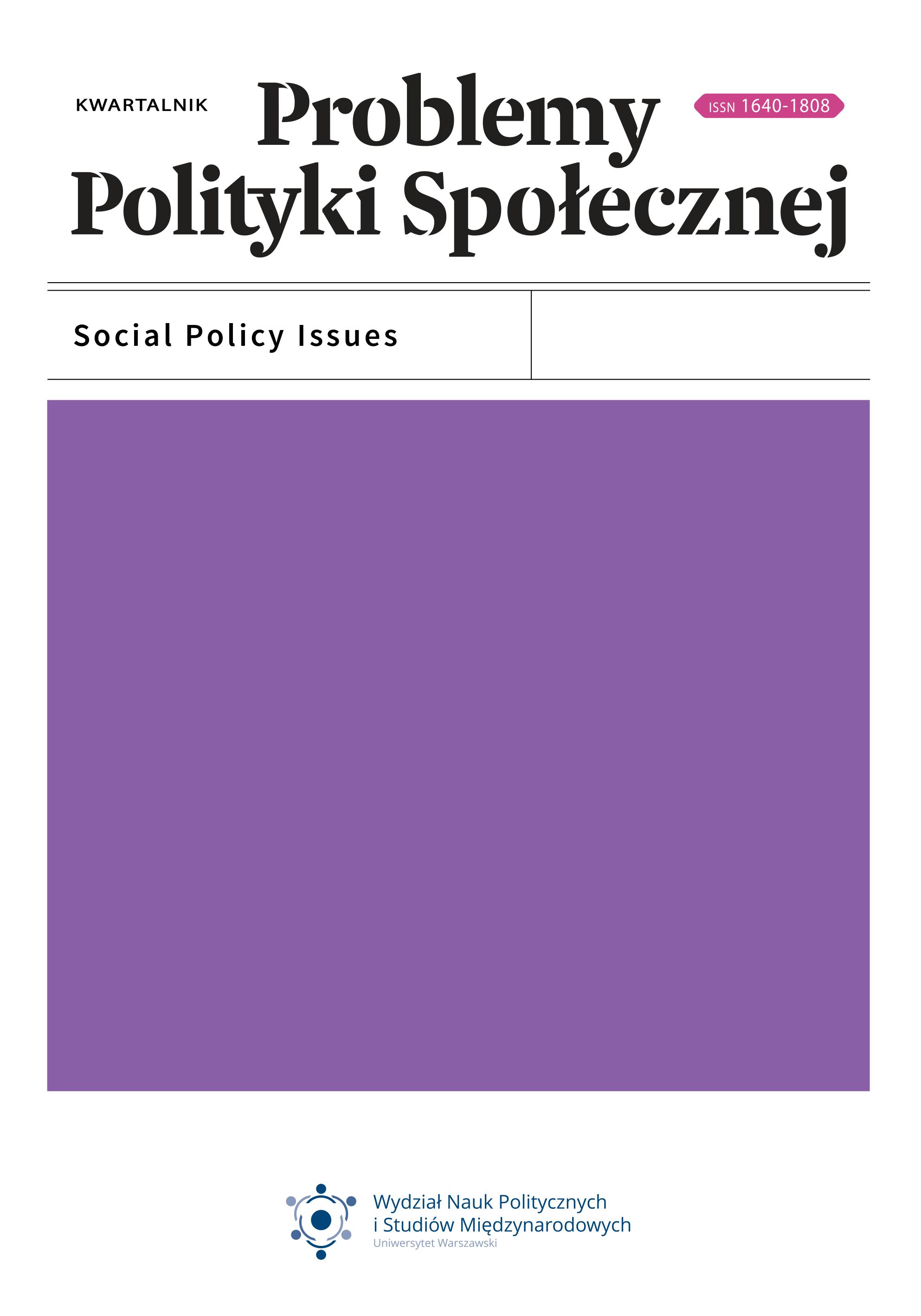Social work and other helping professions in the process of professionalization. The specificity of Poland after 1989 from the perspective of the sociology of professions
Social work and other helping professions in the process of professionalization. The specificity of Poland after 1989 from the perspective of the sociology of professions
Author(s): Marek RymszaSubject(s): Politics / Political Sciences, Social Sciences, Sociology
Published by: Wydział Nauk Politycznych i Studiów Międzynarodowych UW
Keywords: helping (semi-)professions; professionalisation; social work; service ideal; welfare state;
Summary/Abstract: Helping occupations are an integrated category for all specialists delivering social services. Thera are two main dimensions of professionalism in delivering services: (1) technical aspect associated with the accumulation of specialized knowledge about services, and (2) normative aspect related to the service ideal. Sociology of professions considers helping occupations as semi-professions: occupations under the process of professionalization. In Western Europe helping occupations emerged after Industrial Revolution and have been professionalized within the frame of modern welfare states. In Poland professionalization of helping occupations was frozen during fifty years of communism and has accelerated under the transformation and modernization of the last three decades. Like in all EU countries variety of helping specialist have reached the status of regulated occupations. Specificity of the Polish professionalization path is related to: (1) unsuccessful attempts to make social work a reference category for all helping practices, (2) construction of a legal category of the public trust professions open only for a smaller part of helping specialists, (3) ongoing processes of differentiation of assistance practices and fragmentation of social services. The Author argues that in the upcoming years public policy should be implemented to create a new order of helping professions and social services.
Journal: Problemy Polityki Społecznej. Social Policy Issues
- Issue Year: 51/2020
- Issue No: 4
- Page Range: 49-74
- Page Count: 26
- Language: English

